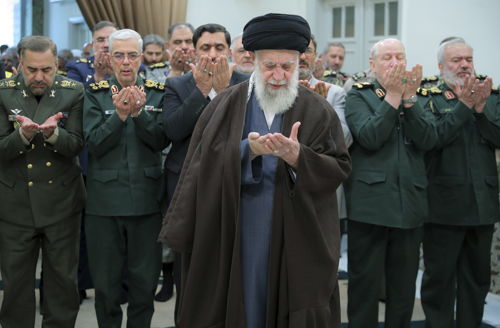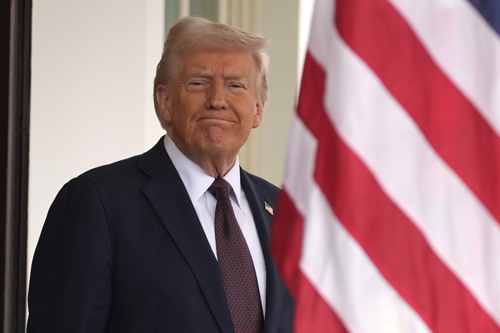Reports indicate a growing fatigue from President Donald Trump in negotiations with Iran that, Trump had hoped, would lead to Iran voluntarily ending its nuclear weapons program.
Iran, however, is not willing to give up its pursuit of uranium enrichment, a key element in weapons production.
“They’re just asking for things that you can’t do,” Trump said Monday after hosting business leaders at the White House. “They don’t want to give up what they have to give up. You know what that is: They seek enrichment.”
In more timely comments Thursday, at a White House press conference, a reporter asked President Trump how "imminent" is an Israeli strike on Iran's nuclear facilities.
"I don't want to say imminent but it looks like something that could very well happen," he replied.
 The U.S. and Iran have completed five rounds of indirect negotiations mediated by Oman, the most recent coming on May 23.
The U.S. and Iran have completed five rounds of indirect negotiations mediated by Oman, the most recent coming on May 23.
A new round of talks is scheduled for Sunday in Oman.
As Iran races toward the ability to produce nuclear bomb-grade uranium, it insists its goals are strictly to produce fuel for civilian power plants.
Rep. Scott Perry (R-Pennsylvania) said on Washington Watch Wednesday that it’s time for Trump to walk away from the table.
“We should not be surprised by Iran's posture and kind of the condition or the stage of where the talks are at this point. What they're doing is they're just playing for time, as they always do,” Perry told show host Tony Perkins. “It’s my opinion that they have no intention, absolutely no intention of changing course.”
Much of the world and some in the U.S. have bought into Iran’s claims that its nuclear intentions are honorable, Perry said.
He disagrees.

“Their nuclear program is specifically and only a weapons program,” he said.
“I think that President Trump is right to grow weary and not as optimistic about the conversation, because I would say the Iranians have no intention whatsoever of walking back from their nuclear ambitions,” Perry said.
Trump has threatened direct attacks against Iran if talks fail.
In March, Trump said on an NBC News Sunday program, “If they don’t make a deal there will be bombing, and it will be bombing the likes of which they have never seen before.”
That’s looking like a necessary course of action, Perry said.
“It’s going to take something more than talk” to get Iran to stand down. “I hate to say it,” Perry said.
A United Nations nuclear watchdog group on Thursday announced a censure of Iran, the group’s board of governors saying it has “formally found that Iran isn’t complying with its nuclear obligations … for the first time in 20 years,” according to The Associated Press.
 Iran doubled down, its leaders saying they will establish a new enrichment facility “in a secure location” and that “other measures are also being planned.”
Iran doubled down, its leaders saying they will establish a new enrichment facility “in a secure location” and that “other measures are also being planned.”
Iran has two underground sites, at Fordo and Natanz, and has been building tunnels in the mountains near Natanz since suspected Israeli sabotage attacks targeted that facility, the AP reported.
A spokesman for Iran’s Atomic Energy Organization said on the country’s state-run television system Thursday that plans are being discussed to modernize centrifuges at its Fordo facility.
“The implication of this is that our production of enriched materials will significantly increase,” Behrouz Kamalvandi said.
The state of Iranian military
Iranian leaders have countered Trump’s threats of attacks with threats of their own against U.S. bases and interests in other countries.
Iran is capable of carrying out some level of attack against the U.S. but nothing like what they might have done during the previous U.S. administration, Perry said.
“They have been diminished more in six months of the Trump administration, more so than they have been over the last five years. Their proxies have been decimated. They have lost ground in Yemen, in Syria and of course, with Israel. So, they are at the most enfeebled state probably in the last 20 years militarily,” Perry said.
A first strike against Iran, whether or not it’s a joint U.S.-Israel operation, would make it even harder for Iran to respond in the near future, Perry said.
“They know that, and I’m sure that’s part of their calculation for any preemptive strike they might be considering right now.”







